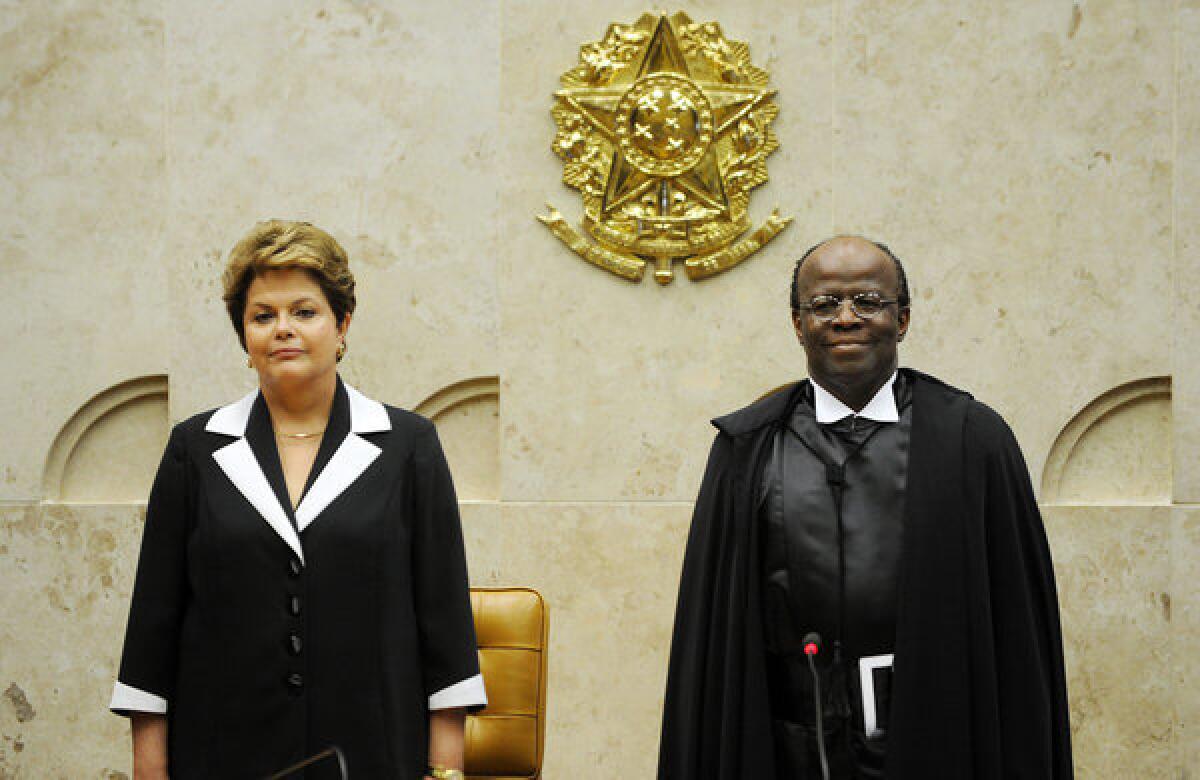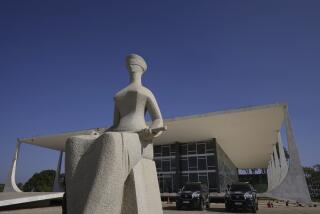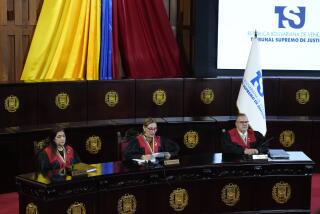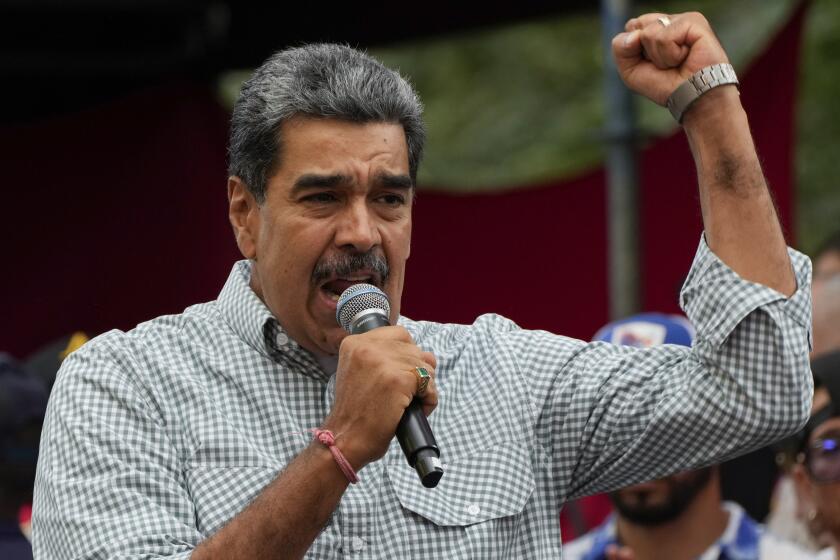Brazil’s corruption-fighting Supreme Court chief abruptly resigns

Brazil’s first black Supreme Court president, who earned a reputation for prosecuting political corruption, has abruptly announced that he will resign and withdraw from active public life.
Joaquim Barbosa, who garnered widespread fame for convicting top politicians in the so-called Mensalao corruption case, had appeared as a contender for the presidency in voter polls, despite eschewing political ambitions and being ineligible for a presidential run until 2018.
The judge announced his resignation Wednesday and told President Dilma Rousseff on Thursday that he would not be in the country during elections this year, local media reported. The announcement weakened speculation that Barbosa would play some role in the campaigns.
“I am honored indeed to have been a part of this college,” Barbosa said. Of his plans, he said: “Politics, not in any way!... I’ll be like [former President Luiz Inacio Lula da Silva]; I’ll give speeches.”
Barbosa, 59, was raised in a poor family from the heartland state of Minas Gerais and was appointed to the Supreme Court by Lula in 2003. But Barbosa drew the enimity of Lula’s party after sending 12 participants in the Mensalao case to jail.
At the same time, Barbosa became a national hero, inspiring Carnival masks and garnering support in election polls, including one in February that put him ahead of the main opposition presidential candidates.
Despite a dip in popularity, Rousseff is favored to win reelection later this year against center-right candidates Aecio Neves and Eduardo Campos. If no clear winner emerges on Oct. 5, a runoff will be held.
An editorial in Rio’s O Globo newspaper lauded Barbosa’s tenure but said that at times he overstepped his mandate.
“In the case of Joaquim Barbosa, you have to go much further than the adjective ‘polemical,’ often used to describe people like him,” the editorial said. “But his biography features the tenacity and competence that he applied to the PT Mensalao case ... and gave hope that independence between powers could do away with impunity for the powerful at times.”
More to Read
Sign up for Essential California
The most important California stories and recommendations in your inbox every morning.
You may occasionally receive promotional content from the Los Angeles Times.










